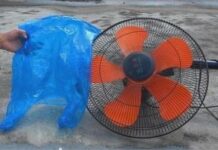With modern intelligent design, dishwashers use powerful water jets, along with chemicals and hot water up to 85 degrees Celsius, to completely clean and sanitize the dishes after washing.
Benefits of Using Industrial Dishwashers
Space and Time Saving
The speed of the hood type dishwasher is 60 racks/hour, which means only 1 minute per rack, and one rack can hold about 30 dishes. So, on average, in one hour, the dishwasher can wash about 1000-1200 dishes. Therefore, you can calculate the amount of time you need to wash dishes based on the number of guests and the number of items to be washed.
Labor and Chemical Saving
If you wash dishes by hand, it will consume a lot of labor, not to mention the high risk of breaking dishes. Another advantage of the dishwasher is water and chemical saving compared to hand washing. A good dishwasher only uses about 2 liters of water per dish rack, which is extremely economical in the long run.
Guaranteed Food Safety
Hand washing dishes can easily compromise food safety if there are a large number of dishes to be washed and the washing is not done thoroughly. Harmful cleaning chemicals can still remain on the dishes after washing. Dishes that are not dried in a timely manner can be a breeding ground for bacteria. Therefore, using a dishwasher is a modern, scientific, and convenient method that ensures food safety and sanitizes dishes up to 85 degrees Celsius, allowing the dishes to dry immediately after washing and can be used right away.
Industrial dishwashers are suitable for all types of restaurants and hotels: the larger the restaurant or hotel, the more suitable it is to choose a dishwasher that matches the number of guests to be served.
How Industrial Dishwashers Work
After starting, the dishwasher automatically drains water onto the dishes for preliminary cleaning. Then it heats up the water to the appropriate temperature. At the right time, the dishwasher will automatically open the detergent dispenser.
The dishwasher sprays water through a high-pressure jet system to remove food residues on the dishes. Then it drains the dirty water for the first time.
The dishwasher sprays hot water with high pressure to rinse the dishes during the main washing process, and then drains the dirty water for the second time.
The dishwasher creates hot air to dry the dishes in the final cycle, ensuring clean and dry dishes and eliminating bacteria.
In addition, to ensure the efficient and long-lasting operation of industrial dishwashers, it is necessary to use the correct specialized chemicals for the machine.
Some Notes When Using Industrial Dishwashers
Before Washing Dishes
Remove all excess food residue from the dishes before placing them in the dishwasher, as excess food can cause clogs in the water pipes, affecting the dishwashing process and soiling the equipment.
Arrange the dishes in the correct position to ensure that they are not mixed up during the washing process, avoiding situations where the rotating branch of water is blocked and the dishes are not completely clean.
Select the appropriate washing mode for different types of dishes and the amount of dishes to be washed.
Do not place plastic dishes or utensils in the lower compartment, as the high temperature in the lower compartment can cause them to melt during the drying process.
During the Dishwashing Process
Use specialized dishwashing water and additives to ensure that the dishes are thoroughly cleaned and to protect the internal parts of the machine from oxidation, reducing the durability of the equipment and affecting its quality and efficiency.
While the machine is running, especially with dishwashers that have a drying function, do not open the dishwasher door, as opening the door will automatically interrupt all operating modes.
After the Dishwashing Process
Turn off the power connected to the machine to ensure safety for users and close the water supply valve to save water and prevent water leakage that can wet the machine and cause corrosion.
When the dishwasher completes the dishwashing process, turn off the machine and wait for about 10 minutes for the temperature inside the machine to decrease and the dishes to dry before removing them.
If you want to keep the dishes in the machine, open the machine door slightly for about 20 minutes to allow any remaining steam inside the machine to escape, preventing water vapor from condensing on the dishes.
8 Common Mistakes People Make with Cutting Boards
Are you using your cutting board correctly? Many Vietnamese households rely on cutting boards in their kitchen, but not everyone knows how to use them properly, especially when it comes to wooden cutting boards. Check out these 8 mistakes to avoid when using a cutting board to ensure both hygiene and safety for everyone in your family.
Is Refrigerated Leftovers Linked to an Increased Risk of Cancer?
Dr. Lam Van Man, Head of Research, Development and Technology Transfer Department of the Institute of Safety Food, has warned of the risk of food poisoning when reheating leftovers from the refrigerator. But what should we be aware of when it comes to the possibility of these leftovers causing cancer? Here, we explore what the experts have to say on the matter and offer some tips for safe eating.
Preserving Leftover Food from the Tet Holiday
With the beginning of the Lunar New Year, many households are stocking up on food to celebrate the festive occasion. While keeping food in the refrigerator is convenient, it can also be harmful to users if not done correctly. We have compiled a few tips to help ensure food remains fresh and safe to consume during Tet.







































